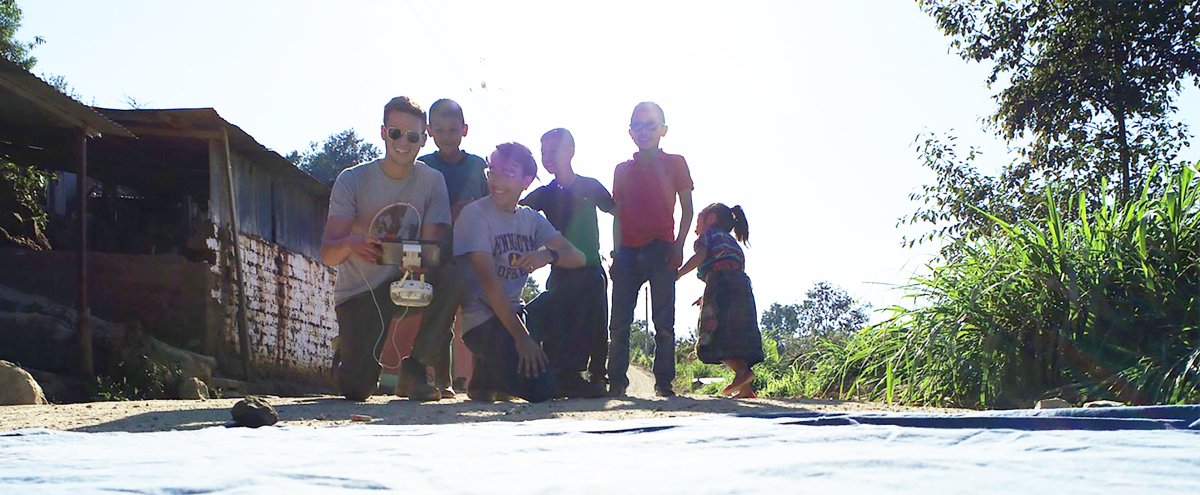Engineers Without Borders Supported by Professional Partners
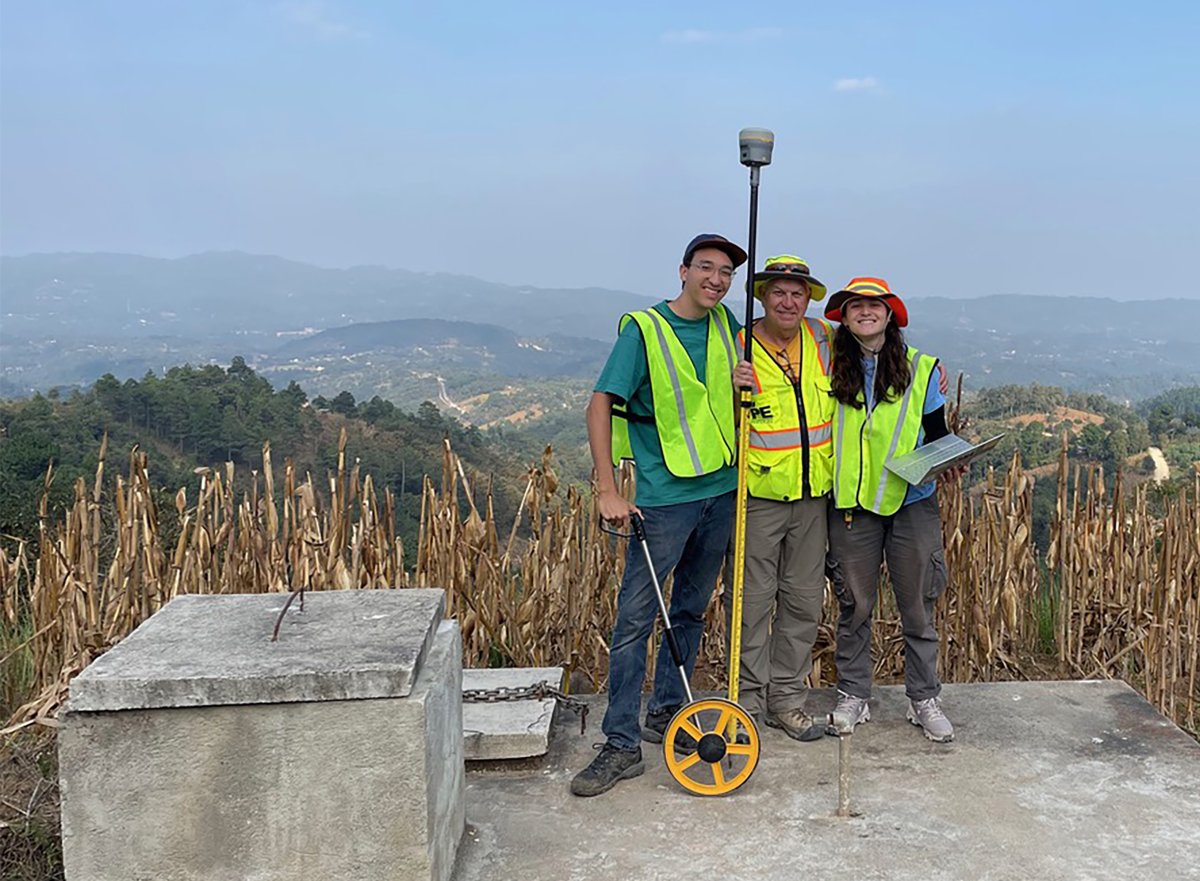
High-Tech Data Collection Partnerships: EWB-UMN supported by Westwood Professional Services, Professional Engineering Services and Frontier Precision
The Engineers Without Borders University of Minnesota Chapter (EWB-UMN) traveled to Simajhuleu, Guatemala, over the 2023 winter break supported by professional engineering partners. Alumni Laura Amundson and Jeff Stewart, who have spent many years as EWB-UMN mentors were with them. The goal of the winter break trip to Simajhuleu was to gather data related to both the technical and societal aspects of the project.
Engineers Without Borders USA, officially founded in 2002, has developed rigorous processes for vetting projects, training students, working with communities in developing countries, and ensuring safe and successful implementation and maintenance of proposed solutions. The EWB-UMN Guatemala program started in 2006 in conjunction with the EWB-MN Professional Chapter and has implemented six water projects in as many communities.
The EWB-UMN team entered Guatemala with little information about the situation in Simajhuleu. Engineering mentors Kevin Miller (AECOM), Chris Ellis (St. Anthony Falls Laboratory, UMN), Jeff Stewart (Professional Engineering Services), and Laura Amundson (retired), and student project co-leaders Lucas Nielsen and Priscilla Bunday had participated in some phone calls with representatives of Simajhuleu. From those conversations, somewhat hindered by Spanish-English language differences, the team understood that homes in the community were having difficulty getting enough water to meet their daily needs. A previous EWB-UMN project in a different community involved drilling a new well and constructing a water distribution system, so the team thought perhaps this project would be similar. However, it turned out that was not the case.
Once in Simajhuleu, the team learned that the community of about 3,500 people, with almost 700 households, had a lot of the water distribution infrastructure in place and an abundance of springs in the area that seemed to deliver an adequate volume of water. However, homes in the area had water access only four hours every four days. During that brief window of time, families would fill barrels or pilas (large sinks or tanks) to store water for use throughout the week. The team also heard complaints of people getting sick, indicating that quality, not just quantity, of water might be an issue. It became clear that the team’s initial task would be to get a better understanding of how the water distribution system was operated and managed by the community.
Digging in a little deeper, the team discovered additional challenges. There was no mapping of the existing pipe network; the team would have to create a map of the existing system. They interviewed members of the community and discovered that parts of the pipe network had been installed 40 years ago. Another challenge was uneven chlorination within the system. Chlorine “pucks” or hard cakes were delivered to the community by the local health clinic. Some cakes seemed to never activate leading to under-chlorination, and some cakes activated too early possibly leading to over-chlorinated water.
The EWB-UMN team used several methods to gather the necessary data, partnering with US-based engineering companies to incorporate high-tech tools that maximized the amount, accuracy, and precision of the data that they were able to collect.
The team used state-of-the-art methods including GPS surveying and mapping (satellite GIS coordinates collected via roving pole technology), personal interviews with community households (data collected via phones and ArcGIS Survey 123 software and saved to the cloud), and photos and video collected via drones. All data gathering was supported by EWB-UMN’s professional partners in engineering fields.
Westwood Professional Services provided the drone and a skilled drone pilot. Alex Behnke, Assistant Project Manager with Westwood, traveled with the team to Simajhuleu for four days. Behnke created flight plans and flew the drone to capture photos to map the entire community. Behnke also captured 360-degree panoramic shots as well as scenic photos and videos of the area. After his return to the US, Behnke developed an orthometrically correct map of the community. U of M instructor Ann Johnson (also with Professional Engineering Services) will assist the student team by importing the drone mapping into AutoCAD/Civil 3D for analysis and future design.
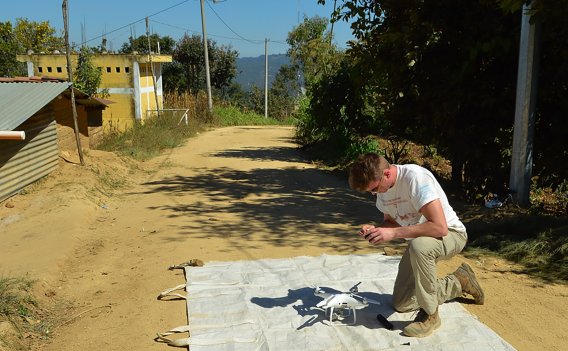
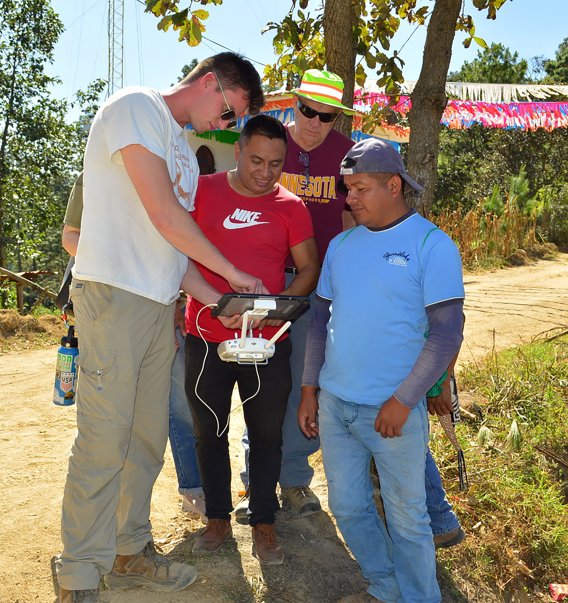
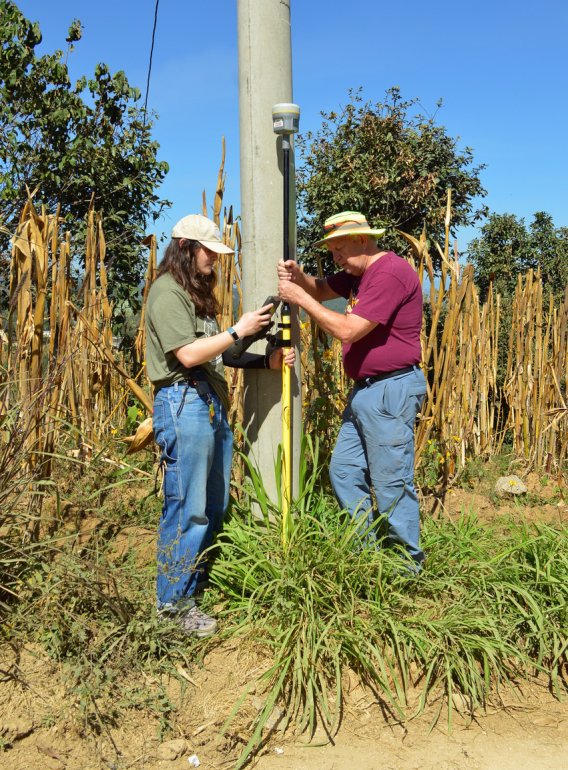
Frontier Precision supplied the team GPS surveying equipment at a deeply discounted cost. Dylan Jones from Frontier Precision supported the team with fabulous, dedicated technical assistance via phone.
EWB-UMN also works with Long Way Home, a non-governmental organization based in Guatemala that helps EWB-UMN with logistics support, local coordination, and translation services. EWB-UMN has been working with Long Way Home since 2006, and they have completed several successful projects in Guatemala.
Students in the EWB-UMN chapter will spend the spring semester assembling and analyzing the gathered data. Their preliminary assessments indicate that the solution might not involve drilling a well, but rather trouble shooting the water distribution system to determine where water is being lost, perhaps leading to fixing of leaks, determining how to protect the system from storm water contamination, or installing water meters at homes. Effort will likely also need to be directed to ensuring the cleanliness and quality of the water supply by enhancing the chlorination of the existing system.
Assessment and data gathering are key to shaping the solution to any civil engineering project. The support of industry partners highlight the importance of this foundational stage. For EWB-UMN, this assessment project will be essential to delivering clean and available water to the community of Simajhuleu, Guatemala.
From CEGE and EWB-UMN, a Big Thank You to our partners at Westwood Professional Services, Professional Engineering Services, AECOM, and Frontier Precision for their help on this project!
